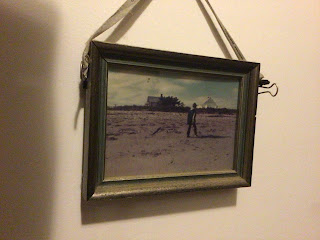Sometimes, not showing up is just not showing up. Our egos are vulnerable possessions.
One last story I am moved to mention here, but which, for reasons of discretion, I have not done before, concerns Derrida’s final reconciliation with Ricoeur. After Derrida’s Dublin lecture on the lie we retired to my house for dinner. During the course of the conversation, the question of Derrida’s depression came up – we had both experienced ‘dark nights’ in our lives – and he happened to mention how one of his worst bouts followed his doctoral defence when Ricoeur (his director) never showed up for the post-dissertation toast. Derrida confided that this withholding of the ceremonial blessing (as he read it) had devastated him, because Ricoeur had been an intellectual father for him since leaving his own family in Algeria to come to Paris as an émigré student. When I informed him that Ricoeur had not come to my doctoral toast either, Derrida was speechless. You too? He exclaimed. ‘Were you not shocked?’ I said not at all. I had simply picked up the phone and asked Ricoeur why he had not shown up – and had received this frank and moving response:
I am sorry Richard, but I never attend any of my student’s dissertation toasts. I have so many and must also look after my own family. I am a bad father to both my intellectual and actual children. I never give either enough time. Such is my life. I do two jobs badly, but it is all I can do. (n.p.)
Derrida was deeply affected and as soon as he returned to Paris the next day phoned Ricoeur. They agreed to meet that same afternoon in the Jardin du Luxembourg (it was early May) and stayed talking non-stop until the gardiens sent them home when the gates closed at 21:00. What they realised during their exchange was that for 30 years their respective philosophical positions (deconstructive and hermeneutic) had been speaking
Chapter 2
43
Where I speak from: A short intellectual autobiography
past each other – mishearing, misreading, miswriting – in part because of a dialogue manqué at a pivotal moment in their lives: Derrida looking for a surrogate father, Ricoeur unable to respond to a surrogate son.
Ricoeur confessed to me subsequently that after this reunion, they continued to talk on a weekly basis right up to Derrida’s untimely death from pancreatic cancer in 2002. Ricoeur wept at Derrida’s passing, confiding to me: ‘It was not fair. He should not have died before me’. Ricoeur joined his adopted spiritual son two years later in 2004. In one of the last conversations I had with Ricoeur, he told me that when he and Derrida had read my book, The God Who May Be, Derrida thought it too hermeneutic while Ricoeur thought it too deconstructionist! I shared with him a line from Seamus Heaney: ‘Two buckets are easier carried than one, I grew up in between’. He smiled.
-- Kearney, R., 2018, ‘Where I speak from: A short intellectual autobiography’, in D.P. Veldsman & Y. Steenkamp (eds.), Debating Otherness with Richard Kearney: Perspectives from South Africa, pp. 31–62, AOSIS, Cape Town. https://richardmkearney.files.wordpress.com/2019/02/where-i-speak-from-a-short-intellectual-autobiography.pdf
Sometimes, when we do enter conversation, a great deal of who we're not sure we are does show up.
Just like that.


